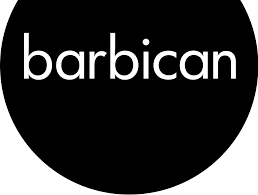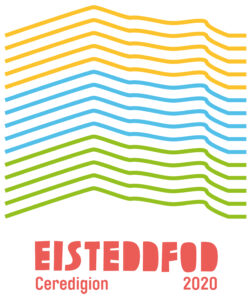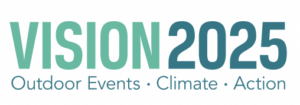Waste has been identified as one of the top three sustainability priorities by event organisers in the annual Industry Green Survey each year for seven years running. A recent report Toward Zero Waste Festivals: Overcoming current challenges in sustainable waste management at UK greenfield events (March 2023) provides a detailed picture of waste challenges experienced by event organisers, insights into future trends and legislative change, and outlines recommendations for events and the industry to make progress on sustainable waste management.
As part of this work, a comprehensive briefing has been prepared to help event organisers fully understand the current legislative landscape for waste, and the key changes on the horizon. This column offers a few key points from the briefing.
Overview of the UK Policy Landscape
Amidst delays in DEFRA consultations due to the Covid-19 pandemic and political uncertainty, there have been some significant policy developments over the past year, which may impact on the events industry. The extended producer responsibility (EPR) policy will make producers liable for the expenses associated with managing their products after the end of their useful lives. Full implementation of EPR is planned for 2025.
January 2023 saw the release of a deposit return schemes (DRS) consultation response for England, Wales and Northern Ireland. It confirmed that it will be implementing a DRS on drinks containers by October 2025 (not including Scotland – Aug 2023). It will charge consumers a deposit on drinks containers such as bottles and cans, intended to promote recycling. Glass will be included in Wales and Scotland.
The impact of DRS and EPR within a festival environment remains uncertain. Under EPR, producers with significant items in circulation will need to support the collection of material; as a result, festivals may see more value in collecting certain materials. Under DRS, how festival goers will redeem their deposits will depend on the nature of the roll out (e.g. digital, vending machines), which may impact on required infrastructure.
The recently released UK Environment Improvement Plan 2023, contained ten goal areas, with goal 5 specifically focusing on maximising our resources, and minimising waste. This included a plan to eliminate biodegradable waste to landfill. It also included a target on banning more single use plastics, including plates, trays, bowls, cutlery, and food containers, from October 2023.
Recycling rates
Most of the nations within the UK are failing to currently meet the minimum 65% recycling target set by the EU with the exception of Wales, demonstrated in Figure 2. The recycling landscape is markedly different in an urban context, with London having a recycling rate of 34% of waste, making it the worst region in England for recycling. Whilst more data is required to ascertain up to date festival recycling rates, in 2015 average rates were recorded as 32% by The Show Must Go Report.
The Food Waste Hierarchy (Statutory Guidance)
The Department for Environment, Food, and Rural Affairs released this statutory guidance in 2018: Food and drink waste hierarchy: Dealing with surplus and waste food and drink. In a nutshell it means businesses should seek to manage food waste in an order or priority (see the Waste and Resources 101 for the hierarchy).The key take-away for events is events they should collect food waste separately to other non-compostable materials and follow the hierarchy above to manage disposal. This is one of the key recommendations for ‘easy wins’ that lead to environmental benefit in the recent Towards Zero Waste Festivals report (2023).
Waste Segregation Requirements
Since 2015 UK Waste Regulations have required businesses to separate recyclable materials from other waste, in an amendment to the Waste Framework Directive. The aim is that paper/card, plastic, glass, and metals are all collected separately.
This law also applies to waste collectors who are not allowed to combine waste streams that have already been separated. Although they may try to use the exception of TEEP Technically, Environmentally and Economically Practicable’ (TEEP) e.g., co-mingling cans and plastics. Glass must be kept separate as it can contaminate other recyclables if it breaks. Paper and card should also be separate as it should be free from liquids and oils which could come from other materials.
Single Use Plastic Items Ban (2020 and 2023)
In October 2020, earbuds, stirrers and plastic straws were banned in the UK. From October 2023 it will introduce a ban on the supply of single-use plastic, including plates, cutlery, balloon sticks and expanded and extruded polystyrene food and drinks containers. Events will need to brief all food and balloon traders and ensure that none are using up old stock as of October 2023.
New Hazardous Waste Law for 2023
Since January 2023 upholstered domestic seating containing Persistent Organic Pollutants (POPs)[1], must be transported and disposed of separately from any other materials. These items can no longer go to landfill and must be incinerated.Businesses must check every item of waste upholstered domestic seating to see if it contains POPs (or assume all upholstered items contain POPs). UK manufacturers of furniture stopped using these materials between 2002 and 2011, but imported items may have been used up until 2019. Some festival venues use old furniture as part of their decor. This is acceptable, but if items are left onsite, they now have to be transported separately to a disposal site (it cannot now be put in skip).
It makes sense for festivals to brief venues on this update and write into contracts that furniture should not be brought on to sites that contain POPS. There may be increased costs for the festival for disposal.
UK Government Waste and Environmental Law Changes
In the 25-year Environment Plan, the UK Government pledged to ensure the environment is left in a better condition for the next generation. The UK Government’s Resource and Waste Strategy was released in 2018 as part of the 25-year environment policy. Measures from it included Extended Producer Responsibility, Deposit Return Schemes, and plastic packaging requiring 30% recycled content.
This has been delayed due to Brexit, Covid and now potentially the cost-of-living crisis
Deposit Return Schemes
On 16 August 2023, Scotland’s drinks deposit return scheme (DRS) is planned to go live (although in March 2023 this is being called in to question by Westminster and other bodies). Drinks receptacles considered to be in-scope (plastic and glass bottles and cans) will be sold with a 20p deposit applied, for drinks that are taken off a premises e.g. from a shop or takeaway from a cafe. Items consumed onsite will not be subject to the charge as the venue will be assumed to be handling the materials.
This is the first DRS being implemented in the UK, with the rest of the UK possibly to follow in 2025.
There is no specific guidance for events currently. It could vary from a closed site, where materials can be captured in on-site recycling systems versus open events where people can take items anywhere. Or there may be a blanket approach of all events have to charge and facilitate return points.
Useful Resources, Case Studies and Tools for Event Organisers
Check out the Vision:2025 Resource Hub for dedicated resources, reports, case studies and tools on waste management here <https://www.vision2025.org.uk/resource-hub/waste-resources/#>
Download the full Toward Zero Waste Festivals Report here.
[1] https://www.gov.uk/guidance/manage-waste-upholstered-domestic-seating-containing-pops#identify-waste-upholstered-domestic-seating-that-contains-pops
























